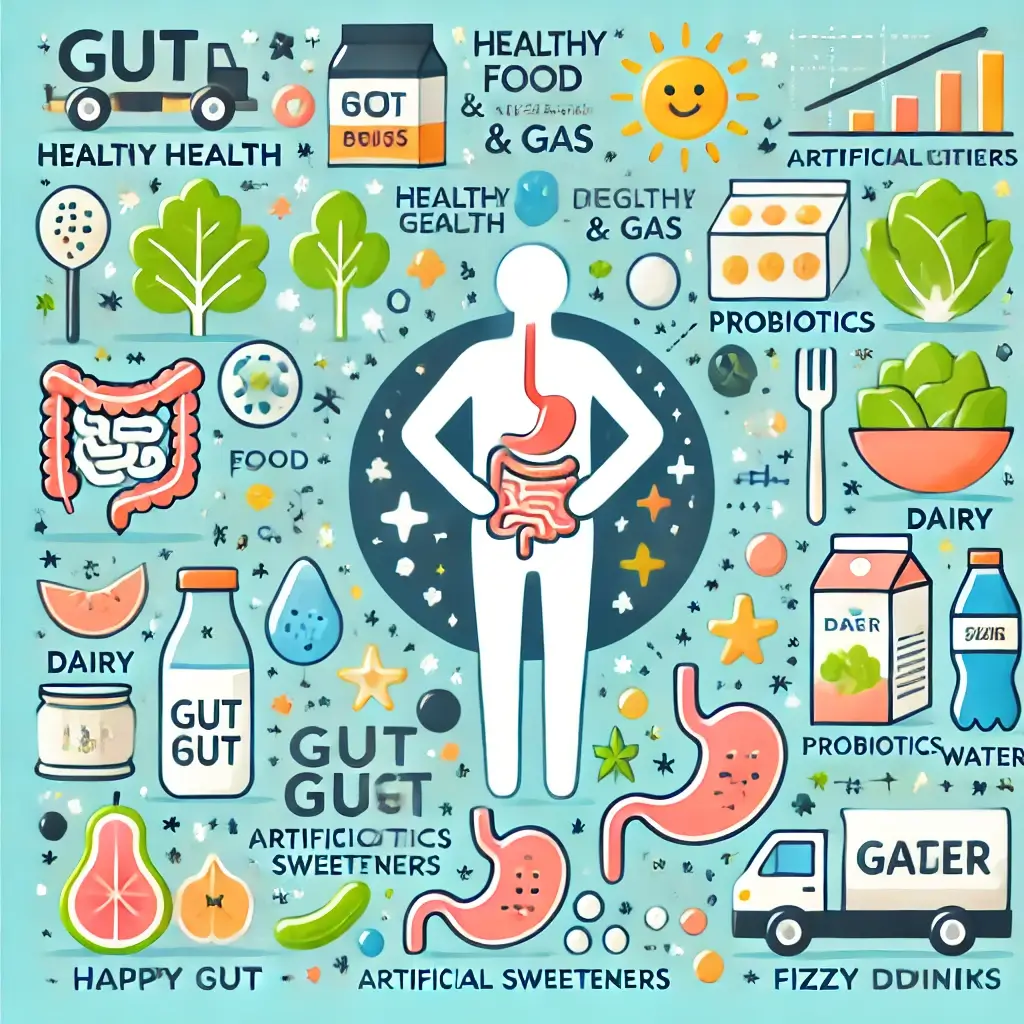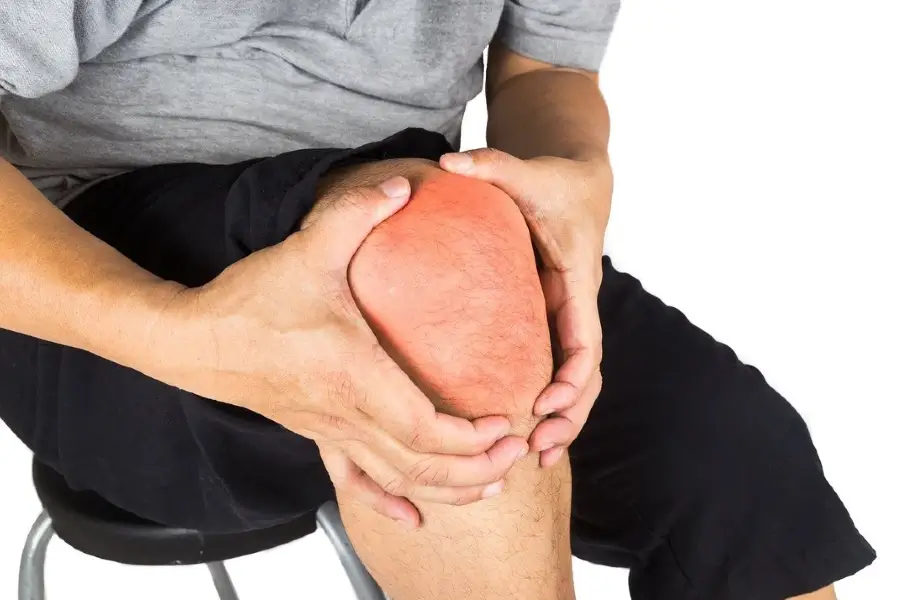Understanding Common Digestive Issues
Bloating and gas are common digestive complaints that many people experience regularly. While these symptoms might seem harmless, they can be uncomfortable and sometimes embarrassing. But did you know that what you eat—and how you eat it—plays a significant role in these issues? Certain foods and habits can make your gut work harder leading to gas buildup and a distended belly.
The good news? Identifying and avoiding triggers can make a world of difference. This article dives into the major food culprits and practical solutions to help you manage bloating and gas. Let’s explore how some foods can affect your digestion and how you can achieve a healthier gut.
Foods That Trigger Bloating: What the Science Says
Several types of foods and habits are known to trigger bloating and gas. Here’s a breakdown of the main offenders and the science behind them:
FODMAPs: Fermentable Carbs
FODMAPs (Fermentable Oligosaccharides, Disaccharides, Monosaccharides, and Polyols) are carbohydrates that aren’t fully absorbed in the small intestine. Instead, they travel to the colon, where gut bacteria ferment them producing gas. This can lead to bloating and discomfort.
Common FODMAP Foods: Apples, pears, garlic, onions, dairy, and wheat products. A study in Gastroenterology found that following a low-FODMAP diet reduced bloating in IBS patients by up to 70% (Shepherd & Gibson, 2017).
Dairy and Lactose Intolerance
Lactose intolerance is a common condition in which the body lacks lactase, an enzyme needed to break down lactose (milk sugar). Undigested lactose ferments in the gut, causing gas and bloating.
The Numbers: According to the Journal of Clinical Gastroenterology, nearly 68% of the global population has some degree of lactose intolerance (Misselwitz et al., 2019).
High-Fiber Foods and Artificial Sweeteners
While fiber is essential for a healthy gut, certain types—especially insoluble fiber—can be harder to digest. Foods like beans, lentils, and cruciferous vegetables (e.g., broccoli and cauliflower) often lead to gas production during digestion.
Sugar substitutes like sorbitol, mannitol, and xylitol, found in sugar-free gum and candies, are known to cause bloating. These sugar alcohols are poorly absorbed by the body leading to fermentation in the gut.
Lifestyle Habits That Impact Digestion
Chewing Gum and Fizzy Drinks: These can cause you to swallow air, which contributes to bloating.
Eating Too Quickly: This can overwhelm the digestive system and increase air intake.
Tackling Bloating: Solutions That Work
The right strategies can help minimize bloating and make digestion smoother. Here are some evidence-based tips for managing digestive issues:
Low-FODMAP Diet Implementation
The low-FODMAP diet has gained significant attention for managing bloating, especially in IBS sufferers. This approach involves avoiding high-FODMAP foods for several weeks before gradually reintroducing them to identify specific triggers.
Results: A study in Gut revealed that 75% of IBS patients experienced symptom relief after following a low-FODMAP diet (Staudacher et al., 2017).
Probiotics for Gut Balance
Probiotics, such as those containing Bifidobacterium and Lactobacillus strains, can help balance gut bacteria reducing bloating and gas. However, their effectiveness varies from person to person.
Clinical Evidence: A 2020 review in Clinical Gastroenterology and Hepatology highlighted probiotics as a promising option for managing bloating (Ford et al., 2020).
Mindful Eating and Lifestyle Changes
Slowing down during meals and chewing thoroughly can prevent swallowing excess air and aid digestion. Additionally, eating smaller more frequent meals reduces digestive load.
Staying hydrated and engaging in light physical activity can improve gut motility, helping reduce bloating. Walking after meals is especially effective.
Final Thoughts on Digestive Health
Bloating and gas may be common, but they don’t have to disrupt your life. By understanding the role of foods like FODMAPs, lactose, and fiber, and incorporating proven strategies such as a low-FODMAP diet and probiotic supplementation, you can take control of your digestive health. If your symptoms persist despite these changes, it’s essential to seek advice from a healthcare provider to rule out any underlying conditions.
For more information, check out recent research in journals like Gastroenterology and Digestive Diseases and Sciences to stay informed about the latest breakthroughs in gut health.
References
Shepherd, S. J., & Gibson, P. R. (2017). “The low FODMAP diet for IBS management.” Gastroenterology.
Misselwitz, B., et al. (2019). “Lactose intolerance: From diagnosis to dietary strategies.” The Lancet Gastroenterology & Hepatology.
Staudacher, H. M., et al. (2017). “Low FODMAP diet and IBS: Evidence and practice.” Gut.
Ford, A. C., et al. (2020). “Probiotics for IBS symptoms management.” Clinical Gastroenterology and Hepatology.

Dominic E. is a passionate filmmaker navigating the exciting intersection of art and science. By day, he delves into the complexities of the human body as a full-time medical writer, meticulously translating intricate medical concepts into accessible and engaging narratives. By night, he explores the boundless realm of cinematic storytelling, crafting narratives that evoke emotion and challenge perspectives.
Film Student and Full-time Medical Writer for ContentVendor.com




